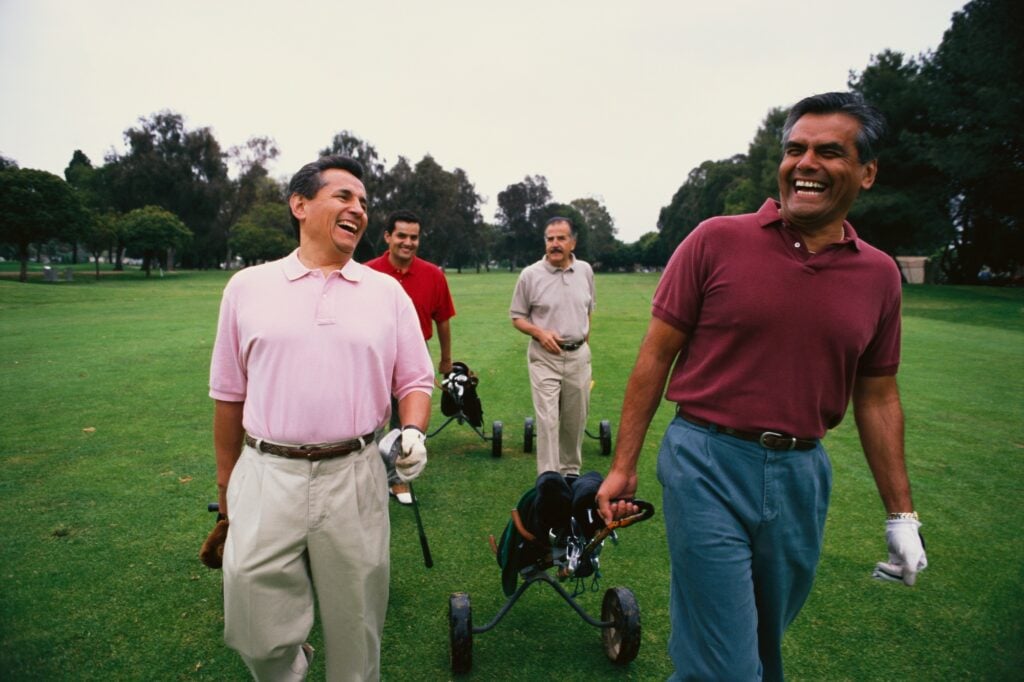
How much do we actually value our handicaps?
How important is your golf handicap to you? Is it your entire reason for being a member, or does it come way down the list of reasons why you pay your subs?
England Golf’s iGolf scheme, which offers an official World Handicap System number to non-club members in return for an annual subscription fee, now has around 30,000 members.
It was a scheme that was criticised and feared by some before its introduction in the summer of 2021, with clubs believing it would lead to an exodus of members.
There was also a separate belief that handicapping should be the preserve of those who made year-long commitments to membership.
The participation boom that accompanied the Covid pandemic blew many of those concerns away but, as was revealed at a recent England Golf WHS workshop, there are many clubs who still choose not to engage with iGolfers or allow them to enter their Open competitions.
That led chiefs to speculate whether clubs were spurning potential revenue by turning away paying customers and even whether Terms of Competition in events could be altered to allow iGolfers to compete in their own division.

On the From the Clubhouse podcast, Tom Irwin and I considered how important a handicap is in the club membership experience – and whether our reasons for being part of an institution were actually much more varied.
I explained that I think it’s an individual thing. It’s not massively high on my list, but then competition play is – and the two go in tandem. You can’t necessarily play in an official club competition without a handicap.
It’s important but it’s not the main driver for me in joining – or staying at – a golf club. It’s about the course. It’s about the environment. It’s about the people. It’s about the practice facilities, the social stuff, and maybe handicaps come in there afterwards.
I’ve had one for such a long time that I don’t think about it too much any more but it’s not the primary reason I’m at a golf club.
Tom said: “The point you make about competition play is important. The fact you can have a handicap that enables you to enter competitions, be it open competitions, or potentially club competitions in the future – you can see how that, long term, may erode away golf club members.
“But I think to say that one of the primary reasons that people are a member of a golf club is to have a handicap, I don’t think that’s quite correct.”
Considering the core of golfers who play in club competitions, you could argue they may not necessarily make up a big proportion of the club membership, and that for many members playing in competitions was not high on their list of priorities.
“And if you think about what happens in a golf club Monday to Friday, then it’s primarily older members who meet up for camaraderie, for companionship, for exercise,” Tom added.
“Prior to WHS, a lot of these people’s handicaps would lapse at the end of the year because they’re not playing to monitor their progress as a golfer. They’re playing because they want to spend time with their friends in the fresh air. Golf happens to be where they do it.
“So I think to say that having a handicap is particularly high up the list of the vast majority of golfers in not valid. But I do think there is some truth in that there could be an erosion of club membership linked to that, which is the competitive point that you make.”
What the World Handicap System has done is take away a lot of that – the idea that your handicap could be active or inactive, depending on how many tournaments you played, was distressing for some people.
One of the positive aspects of WHS, and iGolf as a consequence, is that your handicap is basically there for the entirety of your life as a golfer. It doesn’t disappear.
How you choose to engage with that is up to you. But the principle of everyone having a handicap is there now.
Should a golf handicap remain the preserve of club membership or is it right to allow everyone to get in on the fun? Tweet us and let us know!
Now listen to the From the Clubhouse podcast on iGolf
You can use the buttons or the player below to listen to this episode of From the Clubhouse, or you can find it wherever you normally get your podcasts.
More podcasts from National Club Golfer
Steve Carroll

A journalist for 25 years, Steve has been immersed in club golf for almost as long. A former club captain, he has passed the Level 3 Rules of Golf exam with distinction having attended the R&A's prestigious Tournament Administrators and Referees Seminar.
Steve has officiated at a host of high-profile tournaments, including Open Regional Qualifying, PGA Fourball Championship, English Men's Senior Amateur, and the North of England Amateur Championship. In 2023, he made his international debut as part of the team that refereed England vs Switzerland U16 girls.
A part of NCG's Top 100s panel, Steve has a particular love of links golf and is frantically trying to restore his single-figure handicap. He currently floats at around 11.
Steve plays at Close House, in Newcastle, and York GC, where he is a member of the club's matches and competitions committee and referees the annual 36-hole scratch York Rose Bowl.
Having studied history at Newcastle University, he became a journalist having passed his NTCJ exams at Darlington College of Technology.
What's in Steve's bag: TaylorMade Stealth 2 driver, 3-wood, and hybrids; TaylorMade Stealth 2 irons; TaylorMade Hi-Toe, Ping ChipR, Sik Putter.










